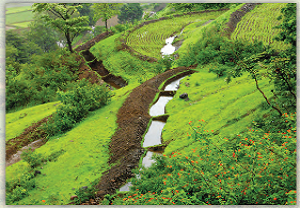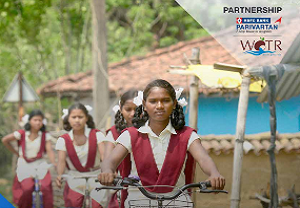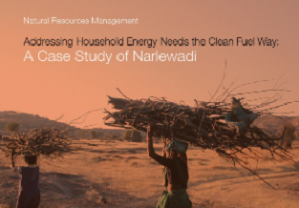Livelihoods

Why Livelihoods?
85% of India’s farmers own land less than 2 hectares and practice subsistence farming amidst degraded natural resources and erratic weather. Lack of reliable income options not only impacts the community’s well being but also leads to challenges such as poverty and distress migration.
There is a need to reduce the overdependence on traditional agriculture by introducing viable alternatives. The diversification from agriculture into other Agro-based livelihoods, rural enterprises and non-farm sectors is an important source of income, economic growth and transformation not just for rural India, but for the whole economy as well.
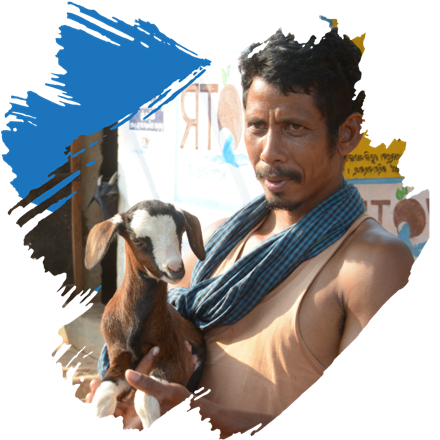
Our Interventions
WOTR is empowering rural communities by helping them explore and leverage the agri-allied and other non-farm livelihood options. We provide handholding support to our communities by educating them and building their capacity to adopt various livelihood alternatives. WOTR aims to diversify the sources of people’s income and help them manage risk in agriculture.
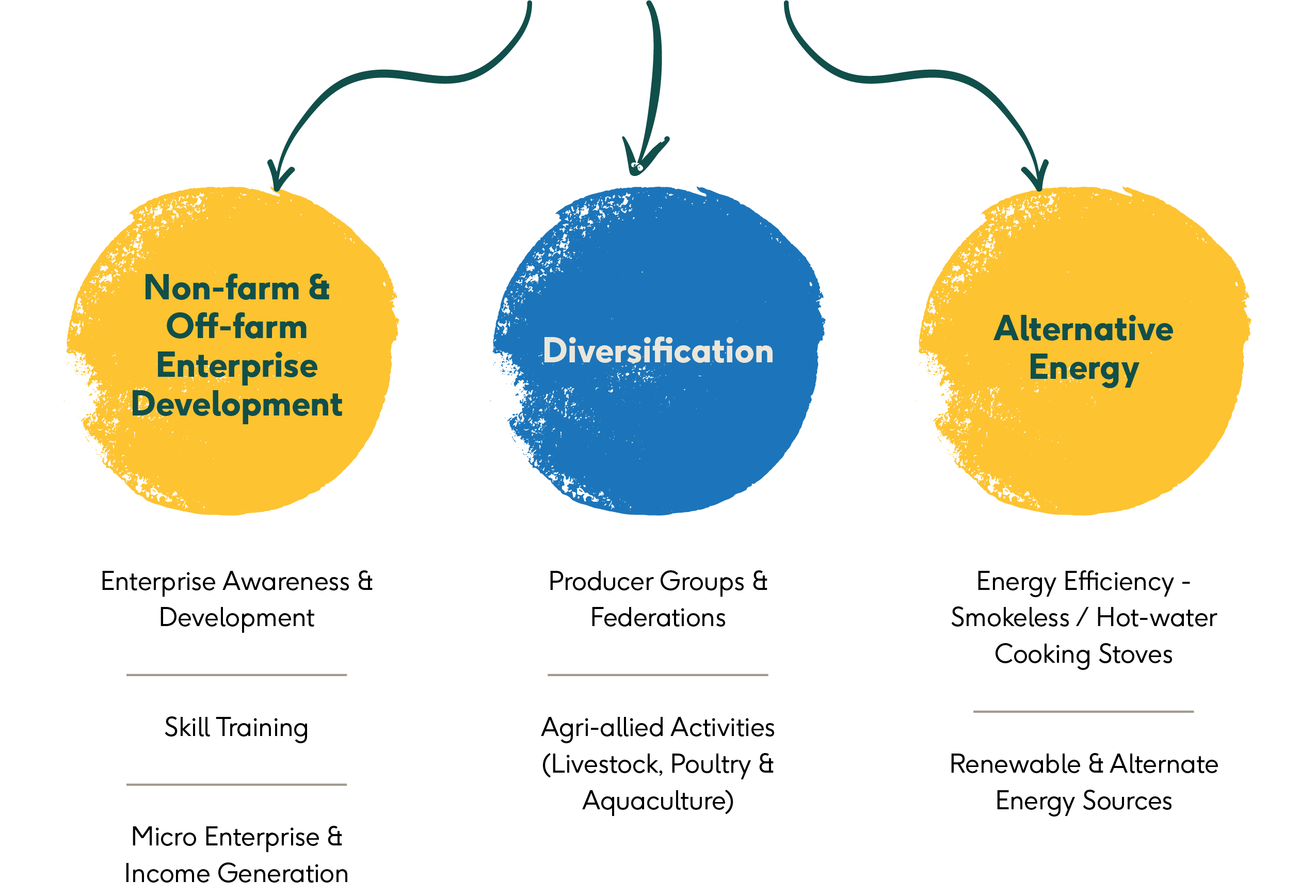
Our Impact
4,400
25%
73
50%
increase in non-farm incomes
livelihood training and exposure visits conducted in 2021-22, covering over 2000 participants
decline in distress migration
Our Impact
4,400
25%
increase in non-farm incomes
73
50%
livelihood training and exposure visits conducted in 2021-22, covering over 2000 participants
decline in distress migration
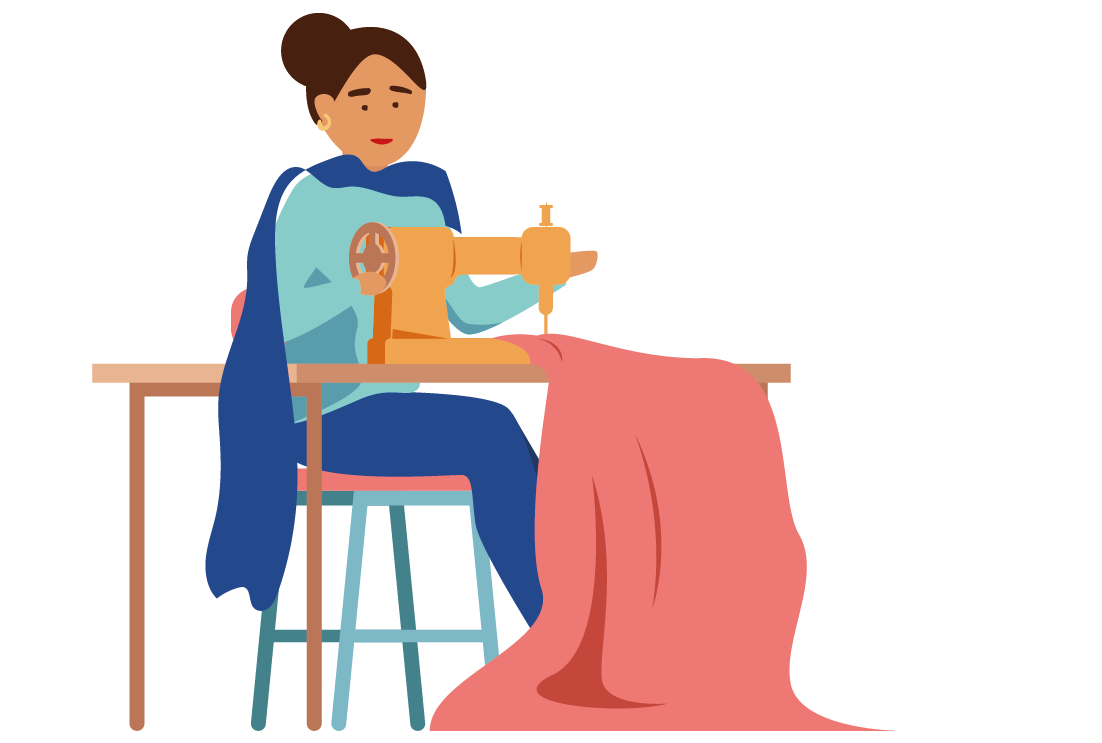

Program Highlights

Our Achievements

Award for Innovation in Technology
Presented by Maharashtra State Rural Livelihood Mission (MSRLM), 2014

Vasantrao Naik Puraskar 2012
WOTR received this award for excellent work done in rural development

Land award 2017
Received for innovations and efforts for achieving Sustainable Development Goals (SDGs), in particular, SDG 15.3 -Life on Land

Social Entrepreneurship Award
Mr. Crispino Lobo, Co-Founder and Managing Trustee of WOTR, received the prestigious award in November 2005, from the Schwab Foundation, Switzerland

JSW-TOI Earth Care Award, 2010 (Commendation)
WOTR received a “Commendation” with a Memento under the category – “Community Based Mitigation and Adaptation to Climate Change”
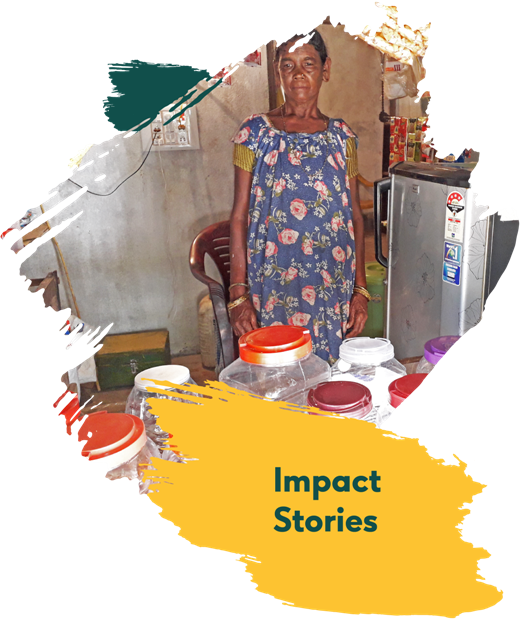
Kamlakola takes charge
The untimely death of her husband, the primary earning member of the family, had left Kamalakola devastated. The responsibility of taking care of the entire family fell on her shoulders. Kamalakola was confused and scared of her future until one of her neighbours told her about WOTR’s implementation of HDFC Bank’s Holistic Rural Development Program.
Today she is a confident and financially independent woman earning a daily profit of Rs 200 from her grocery shop. HRDP has changed Kamalakola’s life.
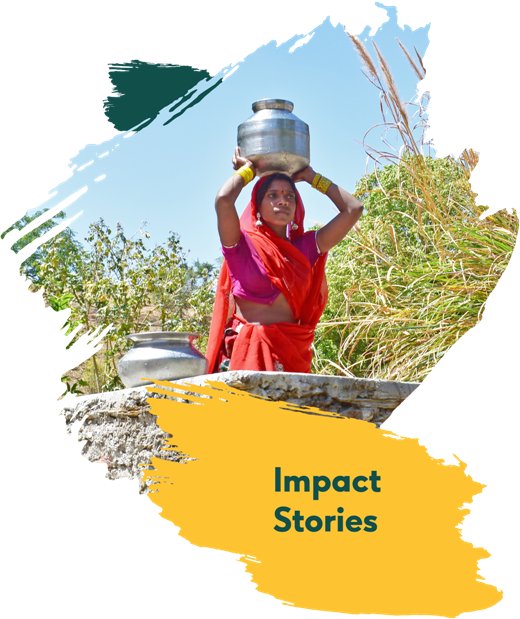
Using the sun to fetch water
The residents of village Modwa were facing a deep water crisis for a long period. The common well in the village, the only source of potable water, was crumbling due to poor maintenance.
In 2016, WOTR used solar pumps to resolve the drinking water issue in this small village of Rajasthan. Today the villagers have clean water supply through taps and they don’t have to worry about fetching water from the well.
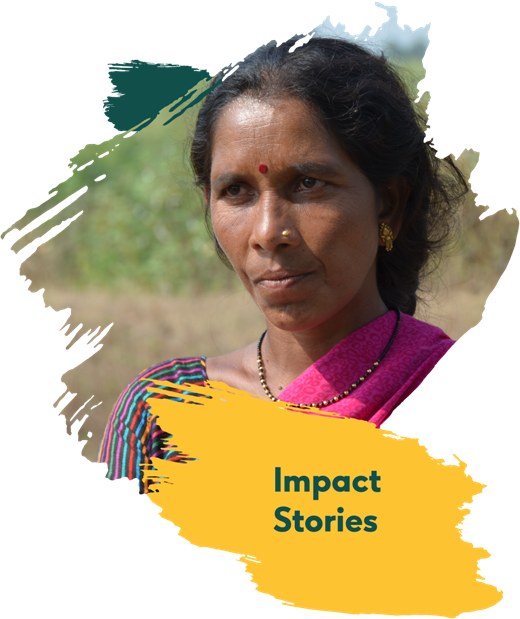
No more financial distress!
Yavatmal district in Maharashtra has several heartbreaking stories of poor agriculture and financial crisis. But Chanda and Ramkala’s story is inspiring to many. After their husbands’ death, both the women were struggling to fend for themselves and take care of their families.
With the support of WOTR’s women empowerment program are successful farmers and are now leading a progressive life. They are now the role models for several women in the community.

Kamlakola takes charge
The untimely death of her husband, the primary earning member of the family, had left Kamalakola devastated. The responsibility of taking care of the entire family fell on her shoulders. Kamalakola was confused and scared of her future until one of her neighbours told her about WOTR’s Holistic Rural Development Program.
Today she is a confident and financially independent woman earning a daily profit of Rs 200 from her grocery shop. HRDP has changed Kamalakola’s life.
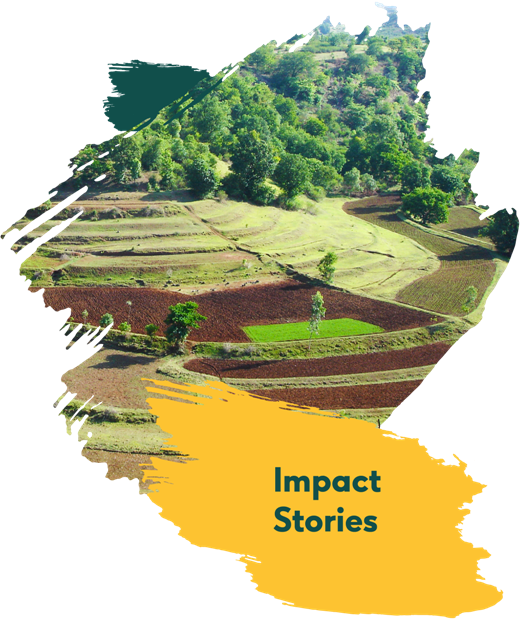
Protecting biodiversity, transforming lives
The parched lands of Purushwadi village were a common sight a few years back. Despite receiving good rainfall, people faced water shortage in other seasons that heavily impacted agriculture and their wellbeing.
But all this changed with WOTR’s Ecosystem-based Adaptation (EbA) approach. By promoting sustainable practices focused on biodiversity conservation, natural resource management and climate change adaptation, the people of Purushwadi are now witnessing a reversal in land degradation. With consistent intervention in the areas, the impact studies have reported a 40% increase in people’s income!
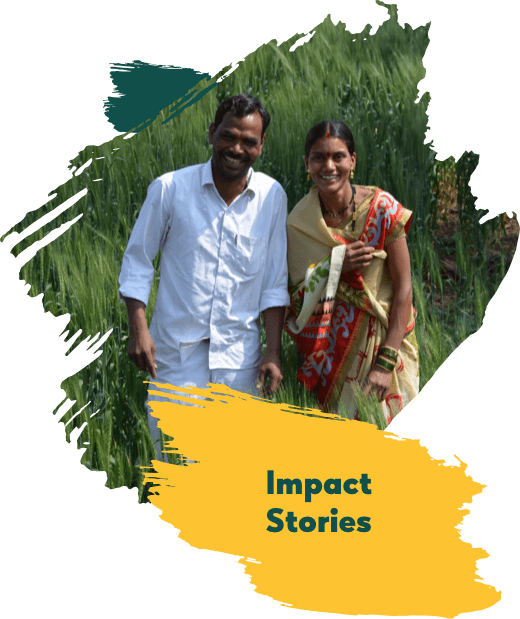
Rise of a changemaker
Santosh Salve saved Rs 25,000 by replacing chemical fertilizer and pesticide with home-made vermicompost, and has restored the nutrients in his soil as a result. All thanks to WOTR who took him through a step-by-step training to start a vermicompost unit and provided him with a starter culture of earthworms. But this was just the beginning and today, thanks to WOTR, Santosh is not only a progressive farmer but a thought leader in his community.

Using the sun to fetch water
The residents of village Modwa were facing a deep water crisis for a long period. The common well in the village, the only source of potable water, was crumbling due to poor maintenance.
In 2016, WOTR used solar pumps to resolve the drinking water issue in this small village of Rajasthan. Today the villagers have clean water supply through taps and they don’t have to worry about fetching water from the well.

No more financial distress!
Yavatmal district in Maharashtra has several heartbreaking stories of poor agriculture and financial crisis. But Chanda and Ramkala’s story is inspiring to many. After their husbands’ death, both the women were struggling to fend for themselves and take care of their families.
With the support of WOTR’s women empowerment program are successful farmers and are now leading a progressive life. They are now the role models for several women in the community.

Kamlakola takes charge
The untimely death of her husband, the primary earning member of the family, had left Kamalakola devastated. The responsibility of taking care of the entire family fell on her shoulders. Kamalakola was confused and scared of her future until one of her neighbours told her about WOTR’s Holistic Rural Development Program.
Today she is a confident and financially independent woman earning a daily profit of Rs 200 from her grocery shop. HRDP has changed Kamalakola’s life.

Protecting biodiversity, transforming lives
The parched lands of Purushwadi village were a common sight a few years back. Despite receiving good rainfall, people faced water shortage in other seasons that heavily impacted agriculture and their wellbeing.
But all this changed with WOTR’s Ecosystem-based Adaptation (EbA) approach. By promoting sustainable practices focused on biodiversity conservation, natural resource management and climate change adaptation, the people of Purushwadi are now witnessing a reversal in land degradation. With consistent intervention in the areas, the impact studies have reported a 40% increase in people’s income!

Rise of a changemaker
Santosh Salve saved Rs 25,000 by replacing chemical fertilizer and pesticide with home-made vermicompost, and has restored the nutrients in his soil as a result. All thanks to WOTR who took him through a step-by-step training to start a vermicompost unit and provided him with a starter culture of earthworms. But this was just the beginning and today, thanks to WOTR, Santosh is not only a progressive farmer but a thought leader in his community.

